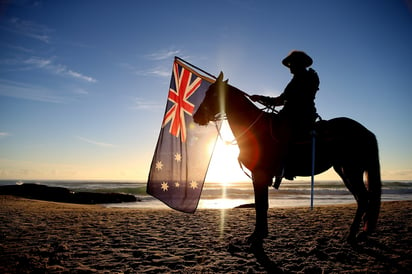While it’s universally recognised that military service can have significant psychological impacts upon veteran mental health, knowing how to provide the right as a friend, loved one or work colleague can be difficult.
Use the following points as a guideline for supporting veteran mental health and help to recognise and respect the mental health journey of those on the front line.
Recognise the symptoms
Symptoms that a veteran may be struggling with mental health may not always be extreme, and may not always appear as PTSD. Some defence personnel may even develop mental health issues regardless of whether or not they have undertaken deployment. Symptoms a veteran may be struggling with their mental health may include long bouts of feeling down or depressed, decrease in socialisation and feeling a lack of excitement or satisfaction in activities that used to be fun. Relationship issues can also arise as a result of withdrawal and depression, along with an increase in anxiety.

As a friend, colleague or loved one, it’s important to note any changes in mood and activity and speak out.
Start the conversation on mental health
Due to being exposed to trauma and high-stress situations, veterans may not always be forthcoming in admitting when they are struggling with mental health. A 2018 study showed that Australian Defence Personnel were more concerned with being seen as weak or having their comrades lose confidence in their abilities if they were to admit to struggling with mental health.
Support veteran mental health by starting the conversation. Keep in mind this doesn’t need to take place in the form of direct confrontation. Check in and ask how they are going, if they need anything or simply invite them to get out and about for a meal or a catch up. Acknowledge the service they have provided and the transitional change they would have had to go through back into civilian life. By being pro-active in starting the conversation on mental health, veterans may be more receptive to admitting having difficulties.
Consider unique circumstances for veterans
It’s important to remember that veterans may be reluctant to converse, particularly with people that may not have the same shared experience. Transitioning back into an environment, finding work and settling into everyday civilian life can make veterans feel isolated, uncomfortable and overwhelming. Combined with dealing with untreated mental health issues, this can often be a triggering experience with long-lasting consequences.
With more women serving in the Australian Defence Force than ever before, it’s important to consider there will be mental health issues particularly affecting women. This includes a lack of identity as a veteran, consequences of time away from their family as a mother, and being a minority in what has been a historically male industry; thus, experiencing a lack of equality and representation.
Help those who may be struggling by researching and suggesting support groups for veteran mental health. By being part of a community who have shared or similar experiences, veterans may be more forthcoming in opening up on how their time spent on the front line has taken a toll on them mentally. Furthermore, these support groups can provide coping tools and techniques specific to frontline mental health, ensuring members can feel recognised in a safe and supportive environment. 24-hour helplines, chat forums and online information are also valuable resources for veterans who may not want or be able to attend a face to face meeting.
If you are a veteran looking for mental health support, check out At Ease, an initiative of the Australian Department of Veterans Affairs.
ANZAC Day is a day when we remember the anniversary of the landings of Australian and New Zealand soldiers or ANZAC’s, as we now call them, on some beaches far away from Australian shores. The place where the ANZAC’s landed is called Gallipoli, a part of a country called Turkey. We recognise ANZAC Day not to celebrate or glorify war, but rather to remember those who have served our country during conflict and crisis.